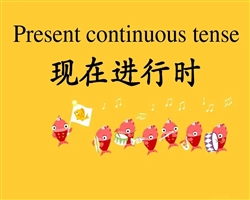一、明喻(simile)是以两种具有相同特征的事物和现象进行对比,表明本体和喻体之间的相似关系,两者都在对比中出现。常用比喻词like, as, as if, as though等,例如:
1、This elephant is like a snake as anybody can see. 这头象和任何人见到的一样像一条蛇。
2、He looked as if he had just stepped out of my book of fairytales and had passed me like a spirit. 他看上去好像刚从我的童话故事书中走出来,像幽灵一样从我身旁走过去。
3、It has long leaves that sway in the wind like slim fingers reaching to touch something.它那长长的叶子在风中摆动,好像伸出纤细的手指去触摸什么东西似的。
二、隐喻(metaphor)这种比喻不通过比喻词进行,而是直接将用事物当作乙事物来描写,甲乙两事物之间的联系和相似之处是暗含的。
1、German guns and German planes rained down bombs, shells and bullets... 德国人的枪炮和飞机将炸弹、炮弹和子弹像暴雨一样倾泻下来。
2、The diamond department was the heart and center of the store. 钻石部是商店的心脏和核心。
三、提喻(synecdoche)又称举隅法,主要特点是局部代表全体,或以全体喻指部分,或以抽象代具体,或以具体代抽象。例如:
1、The Great Wall was made not only of stones and earth, but of the flesh and blood of millions of men. 长城不仅是用石头和土建造的,而且是用几百万人的血和肉建成的。
句中的“the flesh and blood”喻为“the great sacrifice”(巨大的牺牲)
2、“...saying that it was the most beautiful tongue in the world,...” ……他说这是世界上最美的语言。
这里用具体的“tongue”代替抽象的“language”。
4、Many eyes turned to a tall,20—year black girl on the U.S. team. 很多人将眼光投向美国队一个高高的20岁的黑姑娘。
这里的“many eyes”代替了“many persons”。
四、拟人(personification)这种修辞方法是把人类的特点、特性加于外界事物之上,使之人格化,以物拟人,以达到彼此交融,合二为一。
1、She may have tens of thousand of babies in one summer.(From“ Watching Ants”) 一个夏天她可能生育成千上万个孩子。
这里用“she”和“babies”把蜜蜂比作人类妇女的生育。
2、My only worry was that January would find me hunting for a job again. 我唯一担心的是,到了一月份我又得去找工作。
英语里常把“年”“月”“日”人格化,赋以生命,使人们读起来亲切生动。
五、夸张(hyperbole)这是运用丰富的想象,过激的言词,渲染和装饰客观事物,以达到强调的效果。
1、My blood froze. 我的血液都凝固了。
2、When I told our father about this,his heart burst. 当我将这件事告诉我们的父亲时,他的心几乎要迸出来。
3、My heart almost stopped beating when I heard my daughter’s voice on the phone.
从电话里一听到我女儿的声音,我的心几乎停止跳动。
六、叠言(rhetorical repetition)这种修辞法是指在特定的语境中,将相同的结构,相同意义词组成句子重叠使用,以增强语气和力量。
1、It must be created by the blood and the work of all of us who believe in the future, who believe in man and his glorious man—made destiny. 它必须用我们这些对于未来,对于人类以及人类自己创造的伟大命运具有信心的人的鲜血和汗水去创造。
2、... Because good technique in medicine and surgery means more quickly—cured patients, less pain, less discomfort, less death, less disease and less deformity. 因为优良的医疗技术和外科手术意味着更快地治疗病人,更少痛苦,更少不安,更少死亡,更少疾病,和更少残废。
七、借代(metonymy)是指两种不同事物并不相似,但又密不可分,因而常用其中一种事物名称代替另一种。
1、Several years later, word came that Napoleonyh himself was coming to inspect them...
几年以后,他们听说拿破仑要亲自来视察他们。
“word”在这里代替了“news, information”(消息、信息)
2、Al spoke with his eyes, “yes”. 艾尔用眼睛说,“是的”。
“说”应该是嘴的功能,这里实际上是用眼神表达了“说话的意思”。
八、双关语(pun)是以一个词或词组,用巧妙的办法同时把互不关联的两种含义结合起来,以取得一种诙谐有趣的效果。
Napoleon was astonished.”Either you are mad, or I am,”he declared. “Both,sir!”cried the Swede proudly. “Both”一词一语双关,既指拿破仑和这位士兵都是疯子,又指这位战士参加过拿破仑指挥的两次战役。
九、拟声(onomatcpocia)是摹仿自然界中非语言的声音,其发音和所描写的事物的声音很相似,使语言显得生动,富有表现力。
1、On the root of the school house some pigeons were softly cooing. 在学校房屋的屋顶上一些鸽子正轻轻地咕咕叫着。
2、She brought me into touch with everything that could be reached or felt——sunlight, the rustling of silk, the noises of insects, the creaking of a door, the voice of a loved one. 她使我接触到所有够得着的或者感觉得到的东西,如阳光呀,丝绸摆动时的沙沙声呀,昆虫的叫声呀,开门的吱嗄声呀,亲人的说话声呀。
十、讽刺(irony)是指用含蓄的褒义词语来表示其反面的意义,从而达到使本义更加幽默,更加讽刺的效 果。
Well, of course, I knew that gentlemen like you carry only large notes. 啊,当然,我知道像你这样的先生只带大票子。
店员这句话意在讽刺这位穿破衣的顾客:像你这样的人怎么会有大票子呢?名为“gentlemen”实则“beg gar”而已。
十一、通感(synesthesia)是指在某个感官所产生的感觉,转到另一个感官的心理感受。
Some books are to be tasted, others to be swallowed and some few to be chewed and digested. 有些书是应当尝尝滋味的,有些书是应当吞下去的,有少数书是应当咀嚼和消化的。
书是“尝”不出味道的,也是不能“吃”下去将其“消化”掉的。这里把读书中的精读和泛读,阅读欣赏与吸收知识的感受,用味觉功能和消化功能来表示,心理感受是如此逼真和奇特。
十二、头韵法(alliteration)在文句中有两个以上连结在一起的词或词组,其开头的音节有同样的字母或声音,以增强语言的节奏感。
How and why he had come to Princeton, New Jersey is a story of struggle, success, and sadness英语作文中常用的修辞手法。
1. 比喻 (metaphor) 比喻就是打比方。可分为明喻和暗喻:
明喻 (simile): 用like, as, as...as, as if(though) 或用其他词语指出两个不同事物的相似之处。例如:
O my love's like a red, red rose. 我的爱人像一朵红红的玫瑰花。
The man can't be trusted. He is as slippery as an eel. 那个人不可信赖。他像鳗鱼一样狡猾。
He jumped as if he had been stung.他像被蜇了似的跳了起来。
Childhood is like a swiftly passing dream. 童年就像一场疾逝的梦。
暗喻 (metaphor):
用一个词来指代与该词所指事物有相似特点的另外一个事物。例如:
He has a heart of stone. 他有一颗铁石心肠。
The world is a stage. 世界是一个大舞台。
2. 换喻(metonymy)
用某一事物的名称代替另外一个与它关系密切的事物的名称,只要一提到其中一种事物,就会使人联想到另一种。比如用the White House 代替美国政府或者总统, 用the bottle来代替wine 或者alcohol, 用the bar 来代替the legal profession,用 crown代替 king等。例如:
His purse would not allow him that luxury. 他的经济条件不允许他享受那种奢华。
The mother did her best to take care of the cradle. 母亲尽最大努力照看孩子。
He succeeded to the crown in 1848. 他在1848年继承了王位。
3. 提喻 (synecdoche) 指用部分代表整体或者用整体代表部分,以特殊代表一般或者用一般代表特殊。例如:
He earns his bread by writing. 他靠写作挣钱谋生。
The farms were short of hands during the harvest season. 在收获季节里农场缺乏劳动力。
Australia beat Canada at cricket. 澳大利亚队在板球比赛中击败了加拿大队。
He is the Newton of this century. 他是这个世纪的牛顿。
4. 拟人 (personification) 把事物或者概念当作人或者具备人的品质的写法叫拟人。例如:
My heart was singing. 我的心在歌唱。
This time fate was smiling to him. 这一次命运朝他微笑了。
The flowers nodded to her while she passed. 当她经过的时候花儿向她点头致意。
The wind whistled through the trees. 风穿过树丛,树叶哗哗作响。
5. 委婉 (euphemism) 用温和的、间接的词语代替生硬的、粗俗的词语,以免直接说出不愉快的事实冒犯别人或者造成令人窘迫、沮丧的局面。例如:
用to fall asleep; to cease thinking; to pass away; to go to heaven; to leave us 代替 to die
用senior citizens代替old people
用 a slow learner或者an under achiever代替a stupid pupil
用weight watcher代替 fat people
用mental hospital 代替 madhouse或者 asylum
用emotionally disturbed代替mad
用washroom, men's / women's room代替 lavatory
用 handicapped代替 crippled
用low income brackets; underprivileged; disadvantaged 代替 poor people
6. 双关 (pun) 用同音异义或者一词二义来达到诙谐幽默的效果:表面上是一个意思,而实际上却暗含另一个意思,这种暗含的意思才是句子真正的目的所在。例如:
A cannonball took off his legs, so he laid down his arms. (arms可指手臂或者武器) 一发炮弹打断了他的腿,所以他缴械投降了。
“Can I try on that gown in the window?” asked a would-be customer.
“Certainly not, madam!” replied the salesman. 我可以试穿一下橱窗里的那件睡袍吗?或者:我可以在橱窗里试穿那件睡袍吗?
Seven days without water make one weak (week). 七天没有水使一个人虚弱。或者:七天没有水就是一周没有水。
7. 反语 (irony) 使用与真正意义相反的词,正话反说或者反话正说,从对立的角度运用词义来产生特殊的效果。下面就是莎士比亚的戏剧 Julius Caesar 中的一个运用反语的很好的例子,Brutus出于野心刺杀了 Caesar, Caesar 的好友Antony 讥讽Brutus 说:
Here, under leave of Brutus and the rest—
For Brutus is an honorable man;
So are they all, all honorable men—
Come I to speak in Caesar's funeral.
He was my friend, faithful and just to me:
But Brutus says he was ambitious;
And Brutus is an honorable man.
在 Antony 的话里反复使用 honorable这个词就是一个反语的例子。
8. 矛盾修饰 (oxymoron) 把相互矛盾的两个词用在一起的修辞方法。它利用词义表面的相互矛盾使表层的不和谐统一在思想内容的深层,从而揭示事物对立统一的本质特征,达到加深印象的目的。例如:
She read the long-awaited letter with a tearful smile. 她带着含泪的微笑读那封盼望已久的信。
The coach had to be cruel to be kind to his trainees.教练为了对他的受训者仁慈就要对他们残酷。
During his useful life he often felt he was useless. 在他大有作为的一生中他老是感到自己无用。
其他还有sweet pain; thunderous silence; luxurious poverty; heavy lightness; living death; impossible hope 等等。
9. 轭式搭配 (zeugma) 把适用于某一事物的词语顺势用到另外一事物上的方法。在同一个句子里一个词可以修饰或者控制两个或更多的词,它可以使语言活泼,富有幽默感。例如:
She opened the door and her heart to the homeless boy. 她对那无家可归的男孩打开了房门,也敞开了胸怀。
As I left home after breakfast, I shivered inwardly as well as outwardly. 早餐之后我离开家的时候,我的里里外外都在颤抖。
I would my horse had the speed of your tongue. 我希望我的马能有你的舌头的速度。
10. 移位修饰(transferred epithet) 将本应该用来修饰某一类名词的修饰语用来修饰另一类名词。例如:
There was a short, thoughtful silence. 出现了一阵短暂的、令人沉思的寂静。
The old man put a reassuring hand on my shoulder. 老人把一只令人安心的手放在我的肩膀上。
He closed his busy life at the age of sixty. 在六十岁时他结束了他那忙碌的一生。
This is the cheapest market in this country. 这是这个国家最便宜的市场了。
11. 头韵 (alliteration) 两个或者更多的词以相同的音韵或者字母开头就构成头韵。例如:
proud as a peacock
blind as a bat
safe and sound
Long and loudly little Lily laughed. 小莉莉长时间地、大声地笑着。
The windows waved violently in the wind. 窗户在风中剧烈地摇动。
The sun sank slowly. 太阳慢慢地下沉。
12. 渐进 (climax) 根据事物的逻辑关系,由小到大,由轻到重,由浅到深,由低到高,由少到多依次渐进地进行描述或论述。这种整齐的结构可以使人们的思想认识一层层深化提高,增强语言的感染力和说服力。例如:
I came; I saw; I conquer. 我来了;我看到了;我征服。
Reading maketh a full man; conference a ready man; and writing an exact man. 读书使人充实;交谈使人机智;写作使人精确。
Some books are to be tasted, others to be swallowed, and some few to be chewed and digested. 书有可浅尝者,有可吞咽者,更有少数须消化咀嚼者。
Lincoln recognized worth in the common people; he loved the common people; he fought for the common people; and he died for the common people. 林肯认识到平民大众的价值;他热爱平民大众;他为平民大众而斗争;他为平民大众而献身。





 。
。